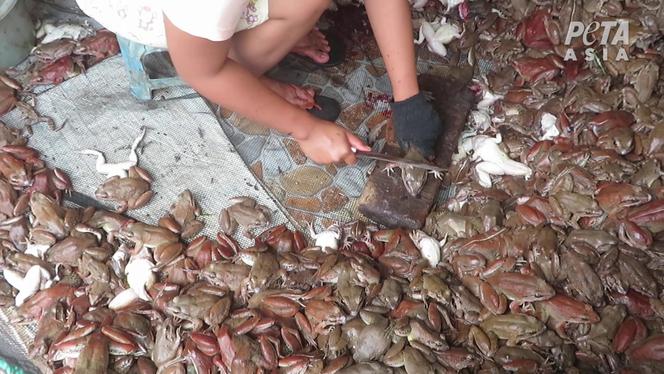A Frankfurt restaurant faces investigation for serving frog legs, as animal rights activists accuse it of animal cruelty.
The animal rights organization Peta has filed a criminal complaint against the upscale Frankfurt bistro “Maaschanz” for serving frog legs. The organization accuses the restaurant of abetting animal cruelty.

The complaint against “Maaschanz” is part of a broader campaign by Peta. Four prominent restaurants in Saarland, including “Le Schloß Halberg” and “Gasthaus zum Adler” in Saarbrücken, the steakhouse “El Carnicero” in Gersweiler, and “Café-Restaurant Schmuggelbud” in Überherrn, have also been reported. According to Peta, these restaurants were warned before the complaints were filed.
Despite the warnings, frog legs remained on the menus, including at “Maaschanz,” which is currently on a break. The bistro offers frog legs in persillade for €14.50 as a starter. A spokesperson for the Saarbrücken public prosecutor’s office confirmed to the newspaper “Bild” that investigations have commenced following the complaints.
Complex legal situation
The legal situation regarding frog legs is complex. While producing frog legs in Germany is illegal due to animal cruelty concerns, importing them remains legal. Peta estimates that around 40 tons of frog legs are imported into Germany annually.
Tanja Breining, a biologist engaged with Peta, states, “Frog legs are a product of animal cruelty, where frogs have their legs hacked off while conscious and undergo other forms of mistreatment.”

Peta has had mixed results with their complaints in the past. Some cases were dismissed, while others resulted in fines. In Hamburg, two Chinese restaurants voluntarily removed frog legs from their menus following public pressure.
Most imported frog legs come from Asia and Southeastern Europe. According to Peta, the frog hunting practices in these regions have significant environmental impacts. “The high demand has led to a sharp decline in frog populations in Indonesia, Albania, and Turkey,” says Breining. The absence of frogs as natural predators can lead to unchecked insect populations, such as mosquitoes.
This isn’t the first time “Maaschanz” has been targeted by animal rights activists. In 2016, Peta protested against the bistro for serving foie gras, a dish produced through force-feeding. Foie gras remains on the bistro’s menu to this day.









